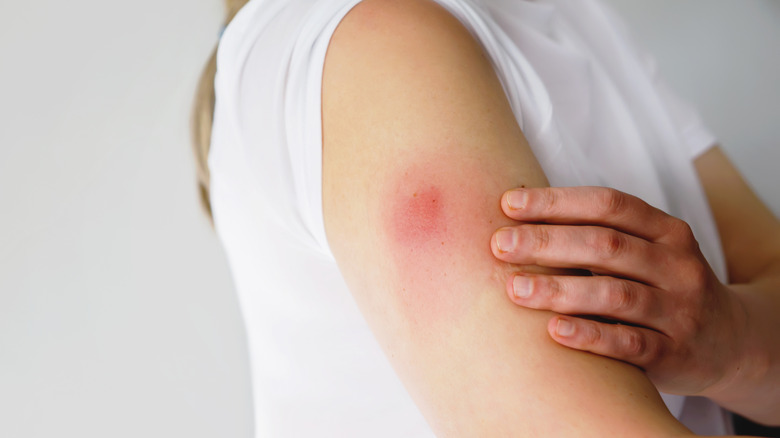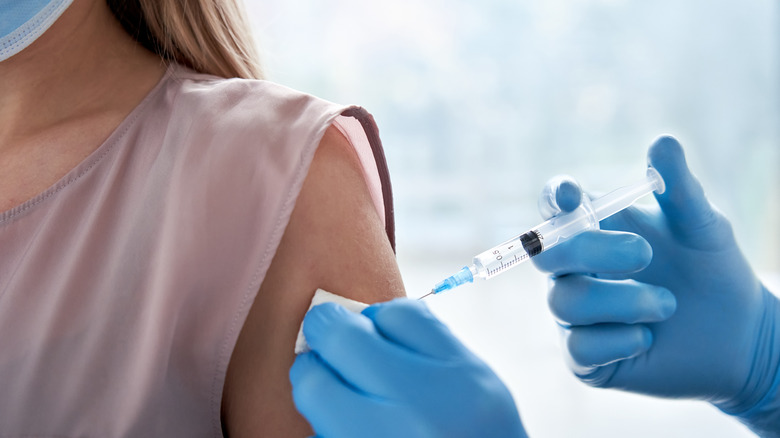Do This If You Think You're Having An Allergic Reaction To The COVID-19 Vaccine
Taking any new medication comes with some inherent concerns and the COVID-19 vaccine is no different. For a small group of people, there is the possibility they will be allergic to one of the ingredients in the vaccine, so it's important to know what to do next.
The Centers for Disease Control and Prevention (CDC) has already put into place some safeguards to help people who may have an allergic reaction. Everyone who receives a vaccine, no matter what brand, is supposed to be monitored on site for at least 15 minutes after their injection. People who have previously had an allergic reaction to a vaccine or any injectable therapy should be monitored for 30 minutes after their shot.
Vaccination sites are required to be ready with medications, equipment, and trained personnel who can help someone having an allergic reaction. These might include interventions like epinephrine or antihistamines, and they should be able to call for emergency medical services to transport the person to a medical facility.
Should you get the second dose?
Signs of a serious allergic reaction include difficulty breathing or a feeling that your throat is closing. This is called anaphylaxis and is most likely to happen within the first 15 minutes after injection, according to CNet.
Non-serious allergic reactions are also possible. Symptoms of this could include hives, swelling, or wheezing in the first four hours after receiving the shot. If you experience a non-serious allergic reaction, you should check in with your doctor to determine the best course of action.
The CDC advises that if you experience a non-serious allergic reaction, you should still plan to get the second shot if one is required. (If you received the Johnson & Johnson vaccine, only one dose is required.) However, if you experienced a serious reaction to the first shot, you should not get the second dose of the vaccine. Always talk to your doctor first, though.
If you have allergies that are not related to vaccines, such as food, pet, latex, medication or environmental allergies, it is also still recommended that you get the COVID-19 vaccine.


